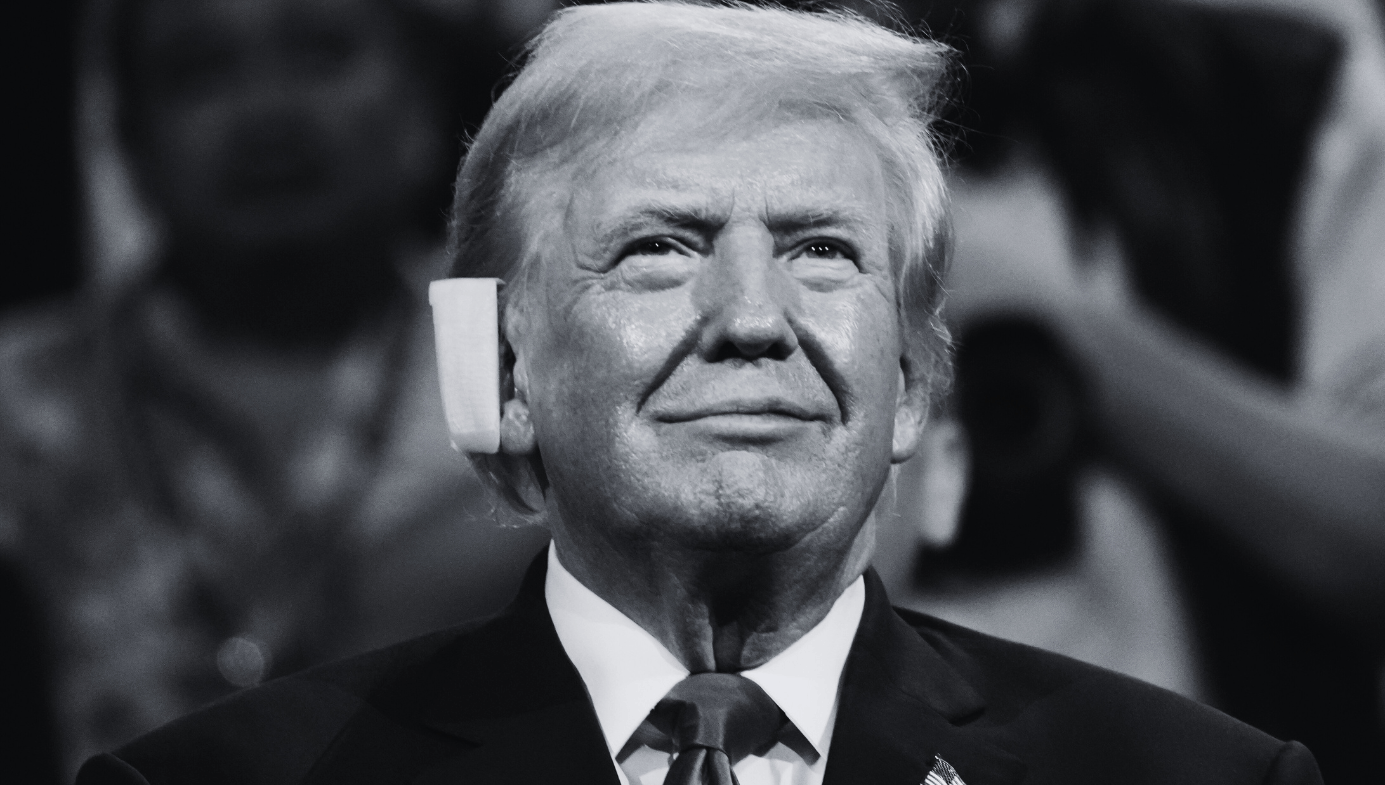Donald Trump
Donald Trump and the Perils of Myth-Making
In the wake of the shooting, we should neither demonise nor sanctify Trump, but assess him by normal political standards.

In the approximately 73 seconds between the moment when Donald Trump was struck by a bullet at a rally in Pennsylvania and the moment when he stood, bleeding from the ear, with his fist raised heavenward, the former president completed his decade-long transformation from businessman to living myth.
There has been a quasi-religious mythos steadily building up around Donald Trump since at least the night of 8 November 2016, when it became apparent that in defiance of all expectations, despite dismal poll numbers and the smug overconfidence of Hillary Clinton and her media spokespeople, he would become the 45th President of the United States. Almost every other American president had held prior political office; the only three who hadn’t—Dwight D. Eisenhower, Ulysses S. Grant, Zachary Taylor—had been important military leaders. Trump’s path, from businessman to reality TV star to president, had been previously untrodden. His bombastic style and unusual career trajectory have led both his supporters and his opponents to describe him in hyperbolic terms. Article after article warned against “normalising” Trump, even before he had taken office. Such rhetoric is dangerous, since it suggests that he is an outlier to whom the normal rules do not apply.
The fact that the recent assassination attempt came so close to succeeding—had Trump not moved his head slightly seconds beforehand, he would have died—may convince a substantial portion of the American electorate that Donald Trump is a man raised up and protected by God for a singular purpose, sent to be the unlikely saviour of the American nation from the powerful forces that conspire against it in our increasingly uncertain world. He is clearly no messiah; even Trump’s most fervent supporters would be hesitant to allow him to usurp the role of Jesus. But he might well be a prophet.





